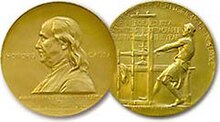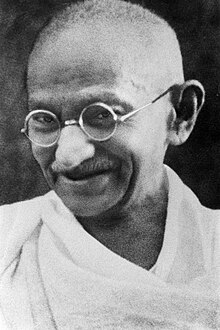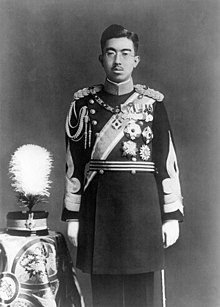Nagroda Pulitzera w dziedzinie literatury faktu
Dziś zagłębimy się w świat Nagroda Pulitzera w dziedzinie literatury faktu, czyli tematu, który na przestrzeni czasu stał się przedmiotem zainteresowania i dyskusji w różnych obszarach. Nagroda Pulitzera w dziedzinie literatury faktu wzbudził ciekawość i fascynację wielu ludzi ze względu na jego znaczenie w dzisiejszym społeczeństwie. Na przestrzeni dziejów Nagroda Pulitzera w dziedzinie literatury faktu odgrywał fundamentalną rolę w różnych kontekstach, od polityki i kultury po naukę i technologię. W tym artykule będziemy badać znaczenie Nagroda Pulitzera w dziedzinie literatury faktu, a także jego wpływ na społeczeństwo jako całość. Dodatkowo przyjrzymy się, jak Nagroda Pulitzera w dziedzinie literatury faktu ewoluował na przestrzeni czasu i jak wpłynął na nasze życie w sposób, którego wcześniej nie rozważaliśmy. Przygotuj się na wejście do fascynującego świata Nagroda Pulitzera w dziedzinie literatury faktu!







Nagroda Pulitzera w dziedzinie literatury faktu – jedna z kategorii Nagrody Pulitzera, przyznawana za wybitne osiągnięcia w dziedzinie literatury faktu. Po raz pierwszy nagrodę w tej kategorii przyznano w 1962. Wyróżniono nią książkę Theodore’a H. White’a o wyborach prezydenckich przeprowadzonych dwa lata wcześniej.
Lista nagrodzonych
| Data | Autor | Tytuł |
|---|---|---|
| 1962 | Theodore H. White | The Making of the President, 1960 |
| 1963 | Barbara W. Tuchman | The Guns of August |
| 1964 | Richard Hofstadter | Anti-intellectualism in American Life |
| 1965 | Howard Mumford Jones | O Strange New World: American Culture, the Formative Years |
| 1966 | Edwin Way Teale | Wandering Through Winter: A Naturalist's Record of a 20,000 Mile Journey Through the North American Winter |
| 1967 | David Brion Davis | The Problem of Slavery in Western Culture |
| 1968 | Will i Ariel Durant | Rousseau and Revolution: A History of Civilization in France, England, and Germany from 1756 and in the Remainder of Europe from 1715 to 1789 |
| 1969 | Norman Mailer | The Armies of the Night: History as a Novel, the Novel as History |
| 1969 | Rene Jules Dubos | So Human an Animal |
| 1970 | Erik Erikson | Gandhi's Truth: On the Origins of Militant Non-Violence |
| 1971 | John Toland | The Rising Sun: The Decline and Fall of the Japanese Empire, 1936–1945 |
| 1972 | Barbara W. Tuchman | Stilwell and the American Experience in China, 1911–1945 |
| 1973 | Frances FitzGerald | Fire in the Lake: The Vietnamese and the Americans in Vietnam |
| 1973 | Robert Coles | Children of Crisis, vol. 2 and 3 |
| 1974 | Ernest Becker. | The Denial of Death |
| 1975 | Annie Dillard | Pilgrim at Tinker Creek |
| 1976 | Robert N. Butler | Why Survive?: Being Old in America |
| 1977 | William W. Warner | Beautiful Swimmers: Watermen, Crabs, and the Chesapeake Bay |
| 1978 | Carl Sagan | The Dragons of Eden: Speculations on the Evolution of Human Intelligence |
| 1979 | Edward O. Wilson | On Human Nature |
| 1980 | Douglas R. Hofstadter | Gödel, Escher, Bach: An Eternal Golden Braid |
| 1981 | Carl E. Schorske | Fin-de-Siècle Vienna: Politics and Culture |
| 1982 | Tracy Kidder | The Soul of a New Machine |
| 1983 | Susan Sheehan | Is There No Place on Earth for Me? |
| 1984 | Paul Starr | The Social Transformation of American Medicine: The Rise of a Sovereign Profession and the Making of a Vast Industry |
| 1985 | Studs Terkel | The Good War: An Oral History of World War Two |
| 1986 | J. Anthony Lukas | Common Ground: A Turbulent Decade in the Lives of Three American Families |
| 1886 | Joseph Lelyveld | Move Your Shadow: South Africa, Black and White |
| 1987 | David K. Shipler | Arab and Jew: Wounded Spirits in a Promised Land |
| 1988 | Richard Rhodes | The Making of the Atomic Bomb |
| 1989 | Neil Sheehan | Bright Shining Lie: John Paul Vann and America in Vietnam |
| 1990 | Dale Maharidge, Michael Williamson | And Their Children After Them: The Legacy of Let Us Now Praise Famous Men: James Agee, Walker Evans, and the Rise and Fall of Cotton in the South |
| 1991 | Bert Holldobler, Edward O. Wilson | The Ants |
| 1992 | Daniel Yergin | The Prize: The Epic Quest for Oil, Money, and Power |
| 1993 | Garry Wills | Lincoln at Gettysburg: The Words That Remade America |
| 1994 | David Remnick | Lenin's Tomb: The Last Days of the Soviet Empire |
| 1995 | Jonathan Weiner | The Beak of the Finch: A Story of Evolution in Our Time |
| 1996 | Tina Rosenberg | The Haunted Land: Facing Europe's Ghosts After Communism |
| 1997 | Richard Kluger | Ashes to Ashes: America's Hundred-Year Cigarette War, the Public Health, and the Unabashed Triumph of Philip Morris |
| 1998 | Jared Diamond | Strzelby, zarazki, maszyny |
| 1999 | John McPhee | Annals of the Former World |
| 2000 | John W. Dower | Embracing Defeat: Japan in the Wake of World War II |
| 2001 | Herbert P. Bix | Hirohito and the Making of Modern Japan |
| 2002 | Diane McWhorter | Carry Me Home: Birmingham, Alabama, the Climactic Battle of the Civil Rights Revolution |
| 2003 | Samantha Power | "A Problem from Hell": America and the Age of Genocide |
| 2004 | Anne Applebaum | Gulag: A History |
| 2005 | Steve Coll | Ghost Wars: The Secret History of the CIA, Afghanistan, and bin Laden, from the Soviet Invasion to September 10, 2001 |
| 2006 | Caroline Elkins | Imperial Reckoning: The Untold Story of Britain's Gulag in Kenya |
| 2007 | Lawrence Wright | The Looming Tower: Al-Qaeda and the Road to 9/11 |
| 2008 | Saul Friedländer | The Years of Extermination: Nazi Germany and the Jews, 1939–1945 |
| 2009 | Douglas A. Blackmon | Slavery by Another Name: The Re-Enslavement of Black Americans from the Civil War to World War II |
| 2010 | David E. Hoffman | The Dead Hand: The Untold Story of the Cold War Arms Race and Its Dangerous Legacy |
| 2011 | Siddhartha Mukherjee | The Emperor of All Maladies: A Biography of Cancer |
| 2012 | Stephen Greenblatt | The Swerve: How The World Became Modern |
| 2013 | Gilbert King | Devil in the Grove: Thurgood Marshall, the Groveland Boys, and the Dawn of a New America |
| 2014 | Dan Fagin | Toms River: A Story of Science and Salvation |
| 2015 | Elizabeth Kolbert | The Sixth Extinction: An Unnatural History |
| 2016 | Joby Warrick | Black Flags: The Rise of ISIS |
| 2017 | Matthew Desmond | Evicted: Poverty and Profit in the American City |
| 2018 | James Forman | Locking Up Our Own: Crime and Punishment in Black America |
| 2019 | Eliza Griswold | Amity and Prosperity: One Family and the Fracturing of America |
| 2020 | Greg Grandin | The End of the Myth: From the Frontier to the Border Wall in the Mind of America |
| Anne Boyer | The Undying: Pain, Vulnerability, Mortality, Medicine, Art, Time, Dreams, Data, Exhaustion, Cancer, and Care | |
| 2021 | David Zucchino | Wilmington’s Lie: The Murderous Coup of 1898 and the Rise of White Supremacy |
| 2022 | Andrea Elliott | Invisible Child: Poverty, Survival and Hope in an American City |
| 2023 | Robert Samuels,
Toluse Olorunnipa |
His Name Is George Floyd: One Man's Life and the Struggle for Racial Justice |
Uwagi
- ↑ Nagroda przyznana pośmiertnie.
Przypisy
- ↑ Theodore H. White, Encyclopædia Britannica (ang.).
- ↑ Barbara Tuchman, Encyclopædia Britannica (ang.).
- ↑ Barbara Tuchman, Journalist, Historian (1912–1989). biography.com. . . (ang.).
- ↑ Vince Goulding: Barbara W. Tuchman, The Guns Of August (1962). hoover.org. . (ang.).
- ↑ Richard Hofstadter, Encyclopædia Britannica (ang.).
- ↑ A Remembrance of Howard Mumford Jones. jstor.org. . (ang.).
- ↑ Howard Mumford Jones Receives A Pulitzer Prize for Non-Fiction. thecrimson.com. . (ang.).
- ↑ Edwin Way Teale. in.gov. . (ang.).
- ↑ David Brion Davis. history.yale.edu/p. . (ang.).
- ↑ Will Durant. will-durant.com. . (ang.).
- ↑ René Dubos, Encyclopædia Britannica (ang.).
- ↑ Erik Erikson, Encyclopædia Britannica (ang.).
- ↑ Erik H. Erikson, Educator, Psychologist, Journalist, Scholar (1902–1994). biography.com. . . (ang.).
- ↑ Historian John Toland Dies. washingtonpost.com. . (ang.).
- ↑ Fire in the Lake: The Vietnamese and the Americans in Vietnam, by Frances FitzGerald. pulitzer.org. . (ang.).
- ↑ William Grimes: William W. Warner, Chesapeake Bay Author, Dies at 88. nytimes.com. . (ang.).
- ↑ William Warner, Literary champion of the crabs of Chesapeake Bay. theguardian.com. . (ang.).
- ↑ Carl Sagan Founder and First President of The Planetary Society. planetary.org. . (ang.).
- ↑ E.O. Wilson, Encyclopædia Britannica (ang.).
- ↑ Is There No Place on Earth for Me?, by Susan Sheehan. pulitzer.org. . (ang.).
- ↑ Richard Rhodes. richardrhodes.com. . (ang.).
- ↑ Neil Sheehan. achievement.org. . (ang.).
- ↑ Jonathan Weiner. journalism.columbia.edu. . (ang.).
- ↑ Dorota Kowalska: Anne Applebaum. Żona Radosława Sikorskiego to dziś jedna z najbardziej wpływowych Polek. polskatimes.pl. . (pol.).
- ↑ Caroline M. Elkins, Visiting Professor of Business Administration. hbs.edu. . (ang.).
- ↑ David E. Hoffman, Contributing editor. washingtonpost.com. . (ang.).
- ↑ The Emperor of All Maladies: A Biography of Cancer, by Siddhartha Mukherjee. pulitzer.org. . (ang.).
- ↑ William Grimes: Making a Name by Uncovering a Lost Case. nytimes.com/. . (ang.).
- ↑ Dan Fagin. Bio. danfagin.com. . (ang.).
- ↑ Toms River: A Story of Science and Salvation, by Dan Fagin. pulitzer.org. . (ang.).
- ↑ Elizabeth Kolbert. newyorker.com. . (ang.).
- ↑ The 100 best nonfiction books: No 1 – The Sixth Extinction by Elizabeth Kolbert (2014). theguardian.com. . (ang.).
- ↑ Joby Warrick. washingtonpost.com. . (ang.).
- ↑ Matthew Desmond. scholar.harvard.edu. . (ang.).
- ↑ Announcement of the 2019 Pulitzer Prize Winners , Pulitzer, 15 kwietnia 2019 (ang.).
- ↑ Greg Grandin , The Pulitzer Prizes .
- ↑ Anne Boyer , The Pulitzer Prizes .
- ↑ Abigail Freeman, Pulitzer Prizes 2021: The Full List Of Winners , Forbes, 11 czerwca 2021 (ang.).
- ↑ Pulitzer Prizes 2022: A Guide to the Winning Books and Finalists, „The New York Times”, 9 maja 2022, ISSN 0362-4331 (ang.).
- ↑ Neda Ulaby, Isabella Gomez Sarmiento, Here are the winners of the 2023 Pulitzer Prizes , NPR, 8 maja 2023 (ang.).
Linki zewnętrzne
- General Nonfiction. pulitzer.org. . (ang.).